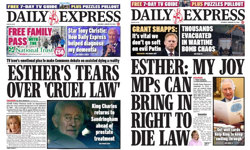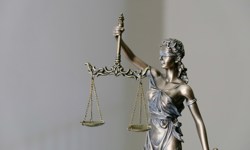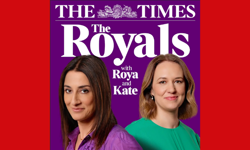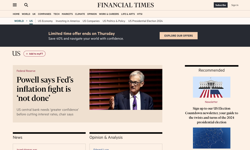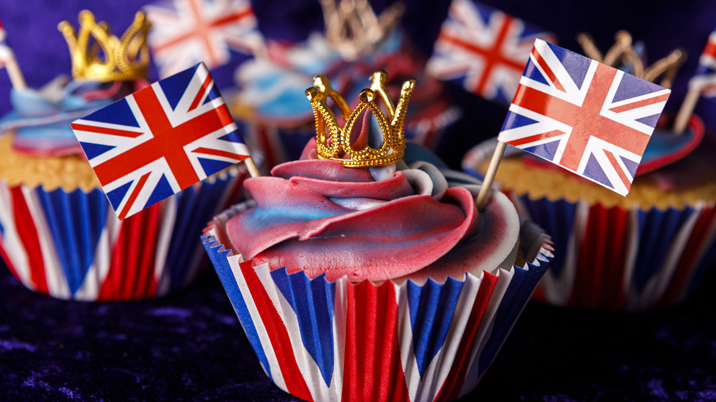
The first time I had watched television, a month earlier, was the famous Stanley Matthews Cup Final. The football left the more vivid impression. Both were on my aunt’s TV set, the only one in the family. Looking at royal media coverage at the time of King Charles III’s coronation and reflecting on what this tells us about the state of the nation, I begin with a confession that would dismay my staunchly royalist parents if they were still alive.
A funny thing happened to me on the day of King Charles III’s coronation. I found myself at a crossroads, taking me from a lifetime of (lukewarm) monarchist to the brink of (lukewarm) republican. Not for me taking to the streets with a placard declaring ‘Not my King’ but a strong feeling that if this wasn’t the last coronation in the UK’s history then it really ought to be.
The deeply disturbing evidence that the Met added to its misogyny and racism charge sheet with an excessive, legally questionable, democracy stress-testing crackdown on peaceful Republican protesters warrants comprehensive investigation by the media, civil rights lawyers, the courts, and the independent police watchdog. Sections of the media were slow to focus on this on the day of the coronation, seemingly for fear of raining on the euphoria parade.
Arguably, the government’s draconian powers move on public order and Home Secretary Suella Braverman’s rabid rhetoric have created a politically toxic climate that ought to ring alarm bells for King Charles himself.
In the coronation build-up, Gaby Hinsliff rather neatly put in her 2 May Guardian column: “It was the call to swear an oath of allegiance to the king that did it. […] But with the idea of encouraging viewers watching the ceremony at home to let out a cry of loyal devotion to the king, in unison with the abbey crowd, something audibly cracked. A public act of homage? How positively feudal.”
The Archbishop’s bish
I know exactly what she meant. Polls suggest around two-thirds of the population agree. The oath was the idea of the Archbishop of Canterbury, but was more a ‘bishop’s bish’ despite efforts to repackage an exhortation as a polite invitation. While, in an increasingly secular nation, the coronation’s high point, the Anointing (hidden from the congregation and global TV audience at Charles’ insistence), with its presumption of God intervening to countenance an hereditary monarch who should ‘live forever’, strikes many as an arcane excursion into The Theatre of The Absurd. Or, as one young family member put it “More Game of Thrones than Game of Thrones but minus the dragons”. The nearest things to dragons? The furore in the kingdom of cyberspace about Prince Harry and Prince Andrew. The former’s attendance sparked mixed support and opposition, while the latter got an overwhelming thumbs down.
Millions did heed the ‘homage’ cry, while millions didn’t. But feedback suggests that across the nation’s hostelries, with drinkers watching the coronation on TV screens, much irreverent merriment was to be had by shouting the oath in the manner of a football chant rather than sober solemnity. Vox pops among the crowds lining the route suggested a cocktail of genuine fidelity mixed with simple big event curiosity.
But what should really be taxing King Charles III, his courtiers and heirs, is those recurring poll statistics. While they show a significantly reduced majority still favouring the monarchy, around 64 per cent of Brits either cared not at all or not very much about the coronation, according to YouGov.
Most worrying of all for Prince William as much as his father, are the polls consistently showing a hefty majority of 18-24 year-olds no longer support the monarchy at all.
Another poll that will doubtless warrant King Charles’ attention is one showing that in six of the 15 Commonwealth states that still recognise him as head of state, clear majorities now favour becoming republics.
Despite the King’s ambition to make his crowning glory day a more modern, more inclusive event than his mother’s, the pomp and circumstance, pageantry, and expense played badly with millions of young people for whom it was more a celebration of the chance to party with the pubs staying open longer than usual and an extra Bank Holiday Monday to follow. Homage to the king? Not so much, if at all. They were also cognisant that no other surviving European monarchy bothers with such an extravaganza.
No Country for the Young
For so many, the movie version of their lives as the Carolean Age commences could easily be No Country for Young Men (or women or young people of gender self-identification) where there’s a cost of living crisis, a Brexit disaster they didn’t vote for, and dwindling prospects of being able to buy their own homes until they are nearing fifty, if ever. The fact that pomp and pageantry is just about the only thing at which Britain tops the world league table in the food bank age offers scant consolation.
Significant, too, that polls showed a majority of the public thought, in these straitened times, the royal family and not the taxpayer ought to foot the coronation cost, a viewpoint again sounded most loudly among the young.
For different reasons, Prince Harry’s attendance at his father’s coronation fascinated both young sympathisers and certain strident British newspapers who pronounced his fleeting presence an unwanted, unwelcome, and a self-promoting sequel to his Netflix documentary and his Spare book savaging of his family and their courtiers.
While I’m no Sussexes cheerleader (the hypocrisy over private jets and climate change, privacy versus publicity, is undeniable), the embittered prince does have some genuine grievances. Without doubt, there were those in or around The Firm for whom a pushy, opinionated mixed race American actress wasn’t their cup of tea. And, yes, some UK newspapers did stray into racist territory. What was depicting Meghan as ‘Straight Outta Compton’ in a Daily Mail 2 November 2016 headline if it wasn’t racist as well as socially and geographically inaccurate?
Playing the tabloid game
That said, Harry is less eager to acknowledge that his mother was herself an adept player of the tabloid game. As a senior executive and editor during the ‘War of the Waleses’ era, I was the ‘beneficiary’ of briefings by sources appointed by both protagonists. And on two occasions, I heard from Diana herself, once to counter a story we’d carried from ‘Team Charles’, the other to alert me to a rendezvous she was having with a married man she’d become infatuated with.
The Guardian’s acerbic and razor-sharp columnist Marina Hyde summed up Coronation Mania back on 18 April when she asked: “How confidence-inspiring is any event that has thus far been defined by about 4,000 articles (and counting) about the attendance or non-attendance of a couple of guests? For a couple we keep hearing are no longer important, the Sussexes do still seem to be the only subject in town.”
Symphony of sycophancy
The tsunami of newspaper, TV, and radio coverage even had some of my monarchist friends and family complaining of overkill and crying ‘enough is enough’. The particularly schmaltzy Mills & Boonesque documentary Queen Camilla: For the love of Charles (Sky, May 2023) triggered memories of Private Eye’s famous catchphrase ‘Pass the sickbag, Alice’. At times, the media was performing a symphony of sycophancy. It didn’t surprise me when UK live viewing figures for the coronation turned out to be around 9 million down on those for the Queen’s funeral.
Personally, the documentary flashback footage that struck me most was that of Harry, the little boy lost cruelly compelled to march behind his mother’s coffin for the benefit of the world’s cameras and to repair the royals’ battered PR image. Those more screeching columnists portraying Meghan as the La La Land bitch who stole our chopper-flying hero prince away might pause to consider, for all her faults, she is the strong lover / mother figure Harry needs.
But pre- and post-coronation, the Duke of Sussex represents the potential spectre at the royal feast. In the days before the coronation came the opening skirmish in the first of a series of legal actions against his trio of prime newspaper targets, Rupert Murdoch’s UK titles, the Mirror group, and Associated Newspapers’ Daily Mail and Mail on Sunday, with allegations not just of phone hacking but of landline bugging, medical record blagging, property break-ins, and bugs planted in homes and cars.
The first big High Court trial test of Harry’s claims kicked off just four days after the coronation with his headline-grabbing broadcast bulletin dominating action against the Mirror Group, with Piers Morgan’s name to the fore. Never publicity averse, the former Daily Mirror editor turned celeb TV presenter launched a pre-emptive counter strike by giving an explosive interview to the BBC’s Amol Rajan that was as much a Trumpesque assault on Prince Harry’s character as a simple denial of the hacking accusation being levelled at him.
Harry also cited an alleged secret pact in which his older brother received a “huge” settlement (believed to top £1m) from Murdoch’s UK empire in return for a mutually beneficial deal in which the royals were to stay schtum until all the phone hackings against the newspaper group were settled (pay-outs and costs bill to date, £1bn plus) and in return the Sun eased back on negative stories about Charles and Camilla. While newspaper chiefs publicly rejected the ‘favourable stories’ pact, it’s significant that neither they nor the Palace has denied Harry’s settlement assertion.
The trouble with Harry plays on
Word has it that such is Harry’s self-styled ‘crusade’ against the British tabloids (others would describe it more a morbid obsession) that if the High Court rejects him, he’s prepared to take his fight to the Appeal Court, the Supreme Court, and even the European courts, all in a blaze of attendant publicity. So, King Charles and Prince William may have to gird their loins for a protracted, headline-grabbing international soap opera unlikely to end any time soon.
Not for nothing were Palace officials at pains to brief the media that the King raised a post-ceremony birthday toast to Prince Harry’s son Archie even as his father skedaddled back to California.
Another soap opera twist looms with the legal action launched by the Trump-linked conservative US think tank The Heritage Foundation seeking to establish if Prince Harry disclosed the illegal drug-taking he admitted to in Spare as legally required in his US visa application. If not, he could potentially face expulsion. Whispers suggest the move was ‘encouraged’ by a couple of anti-Harry British newspapers and right-wing MPs.
Biscuits and bling for a King
Invoking the further ire of my young research sampling was when I took them through the Guardian’s exhaustive investigation series into the scale of King Charles’ and the royal family’s wealth. Even as a media commentator and former national newspaper editor with a keen interest in the royal family, I found the figures eye-popping.
According to the Guardian, the ‘Biscuits and Bling’ breakdown of Charles’ wealth adds up to £1.82bn, with a list that includes private property (330m), Duchy of Lancaster (£653m), investments (£142m), jewellery (£533m), horses (£27m), stamp collections (£100m), cars (£6m) and art collections (£24m). While for the year ending 31 March 2022, Charles not only earned £21m personally from the Duchy but deducted millions in expenses for himself and Camilla. The Duchy, incidentally, pays no corporation tax even though it is run on corporate lines with an executive board and staff of around 150.
Many of my climate change activist young contacts were unaware of the monarchy’s archaic ownership rights of most of the UK’s seabed. In January, the Crown Estate licensed six new offshore wind farms in a £1bn a year deal. It didn’t get the tabloid coverage it merited, and although King Charles has suggested the profits will “go to the public good, not myself”, there are so far no details how.
In the 26 April edition of The New European, artfully headlined ‘ACCESSION: The Coming Trials of King Charles’, the respected biographer of The Queen, Clive Irving, recounted the then Prince of Wales’ hostility to close scrutiny of his personal wealth. The future king stressed rather haughtily, “I think it is of absolute importance that the monarch should have a degree of financial independence from the state […] I am not prepared to take on the position of sovereign on any other basis.”
Accession of a plutocrat?
Hardly a rallying call for the disillusioned generation. Irving argued, “Instinctively, Charles is a plutocrat, and he lives in a plutocrat’s bubble. The Queen, though very rich, was not. Consequently, Charles’ version of a monarchy is beginning to look more and more like a plutocracy.”
It is undeniable that the King’s wealth is soaring massively in sharp contrast to that of his ordinary subjects whose disposable income has barely risen in the last 15 years. Over the same period, the taxpayer-funded Sovereign Grant has grown from £30m to £86.3m per annum. Significant, too, how my youthful sample said that a sense of respect for The Queen meant they had been far more interested in her Platinum Jubilee than King Charles’ coronation or the monarchy’s future. For them, a sense of resentment over Charles’ wealth and privilege is destined to shape the future in the wake of 6 May’s pomp and pageantry.
Some polls also revealed how many people resented Camilla being crowned Queen, with Princess Diana’s ghost far from exorcised. Surprising how many recalled that excruciating Charles / Camilla tampongate tape. Even the monarchist Daily Mail felt obliged to run a mix of sympathetic and less sympathetic articles about Camilla after one reader survey reflected only 13 per cent welcomed her becoming Queen.
Can soft power save the monarchy?
For many of Charles’s media supporters, ‘soft power’ is the buzz term. The respected author of two acclaimed Charles’ biographies, Catherine Mayer, who was granted remarkable access to his inner circle, told me at the 15 March 2023 Society of Editors conference, “The King and Prince William are well aware of the importance of soft power. The threat to the monarchy is not revolution but the danger of the evolution of irrelevance, apathy, boredom, particularly among the young, together with the potential for both the mainstream media and social media becoming seriously disenchanted. That’s the challenge facing both the King and the Prince of Wales and soft power is a way to combat that.”
Paradoxically, perhaps, another poll in the i newspaper on 8 May provided King Charles with food for thought when it showed young people in particular warming to the notion of a more ‘political monarch’ who spoke his mind and intervened on the ‘big issues’. By curious coincidence, the next day’s Daily Mail went off adulatory piste to splash on a claim that, not long before becoming monarch, Charles and then prime minister Boris Johnson ‘squared up’ to each other over the then Prince calling the government’s Rwanda policy over migrants ‘appalling’, with the PM accusing him of political meddling. It was based on a claim by former No 10 Communications Director Guto Harris, the former BBC journalist who also served as Johnson’s communications guru when he was London Mayor.
For Charles, William, and even Prince George, the monarchical clock ticks ever louder and the juggling act needed to somehow keep the public and media onside ever trickier: Game of Thrones indeed.
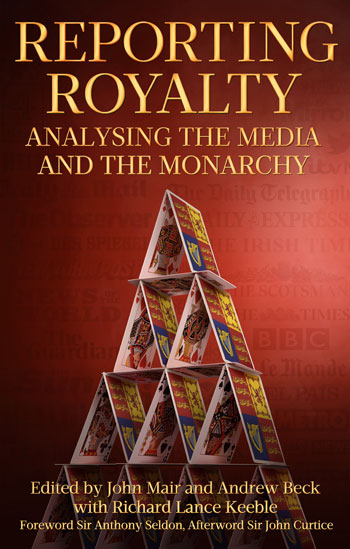
This chapter was taken from the new book, ‘Reporting Royalty – Analysing the media and the monarchy’, edited by John Mair and Andrew Beck with Richard Lance Keeble, published by MGM Books. Reporting Royalty can be purchased via Amazon.





